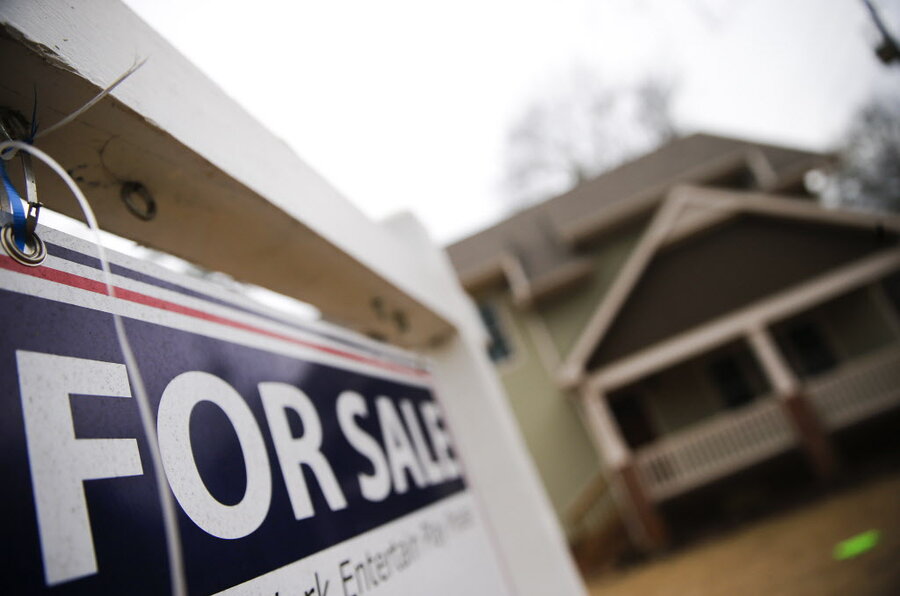Should you refinance your home when you approach retirement?
Loading...
Lower mortgage rates can save you hundreds of dollars on your monthly payments. Refinancing your mortgage to a new one with a lower rate would then seem to make sense.
But what if you're approaching retirement? Is refinancing a smart move when you're planning to leave the workforce in five years or less?
Not surprisingly, the answer depends on your unique financial situation and your goal from a refinance. (See also: 4 Mortgage Secrets Only Your Broker Knows)
Consider the Time Factor
If your main goal is to reduce your monthly costs, refinancing might make sense. But if you plan on moving from your home shortly — in, say, less than five years — then a refinance might not be the best option. That's because refinancing a home loan isn't free. The typical refinance costs thousands of dollars — money that you'll usually roll into your new loan amount and pay off over time when you make your regular monthly payments.
It might take you several years to save enough money each month to recover the closing costs. If you're moving too soon (and retirees often move from their homes sooner than they originally planned), you might not generate enough monthly savings to even pay back those initial closing costs.
Then there's the time factor. A refinance, unless you are reducing the term of your loan at the same time, means that you'll be paying off your mortgage for a longer number of years. As a retiree, you might instead prefer to pay off your current mortgage in a shorter amount of time.
"One consideration is the length of the term on the new loan," said Arvin Sahakian, co-founder and vice president of BeSmartee, a start-up designed to help consumers search for mortgage loans online. "When people refinance their mortgage, they are re-setting the loan term and essentially starting over again."
As an example, if you are paying off a 30-year fixed-rate mortgage that you have been making payments on for 15 years, you'll have an additional 15 years left to pay off that loan. If you refinance that loan to a new 30-year one, you've just increased the lifespan of your mortgage by another 15 years. Do you want that monthly payment hovering over you for another 15 years, even if refinancing will result in immediate monthly savings?
That's not an easy question to answer, especially when you consider how much of your payments on a new mortgage loan, even one with a lower interest rate, will go toward interest instead of principal.
"The first few years of mortgage payments on a new loan are designed to go toward the interest, and less towards the principal," Sahakian said. "As the years go by, more of the monthly payments go toward the principal, and less toward the interest, so this is another important consideration."
What the Numbers Say
It's important for every homeowner to crunch some numbers before deciding to refinance. But it's especially important for those nearing retirement who might need to recover their refinancing closing costs in as few months as possible.
Say you owe $150,000 on a 30-year fixed-rate mortgage with an interest rate of 5%. Your monthly payment, not including insurance and taxes, will be about $805. If you refinance that same amount to a 30-year fixed-rate loan with an interest rate of 3.95%, your monthly payment will drop to about $711 a month — a savings of about $94 a month, or $1,128 a year.
That sounds good, right? But remember, refinancing can be expensive. Say refinancing that $150,000 costs $4,500 in closing fees. It will take you almost four years to save enough from your refinance to pay back these closings costs. Is that worth it? If you stay in your home for eight years or more, it might be. If you end up moving in five years, it might not be.
But say you owe $200,000 on a 30-year fixed-rate loan with an interest rate of 5%. Then your monthly payment, again not counting taxes and insurance, would be about $1,073. If you refinance that $200,000 to a new 30-year fixed-rate loan but at an interest rate of 3.95%, your monthly payment would fall to about $949 a month. That's a savings of $124 a month, or $1,488 a year. If your loan closing cost that same $4,500, it would take you just a bit more than three years to generate enough savings to pay for your closing costs. That shorter time frame might make it more worthwhile for homeowners nearing retirement.
There is another factor to consider, though. If you'll absolutely need to reduce your monthly living expenses after you retire, then refinancing might make sense, even if it will take you longer to recover the costs of closing.
"Many Americans who retire typically see their retirement income fall to nearly half of what they earned while they worked full time," Sahakian said. "This is one of the considerations borrowers should account for when making a decision about refinancing. Will they be able to afford the monthly payments associated with the mortgage, insurance, and property taxes on their retirement income?"
This article first appeared at Wise Bread.







